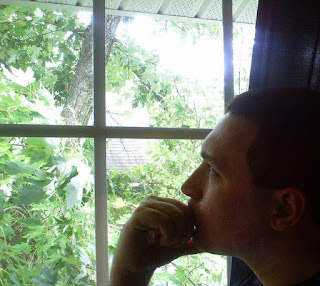Click To Enlarge
Interesting things always happen in the life of a Hellenist, even if sometimes we may not understand them, or misinterpret them entirely. Hellenism is a life of learning, experiencing, and philosophizing. Above my temple doors has long stood a plaque of Medusa, although it was originally white, with a flawlessly smooth surface, and in actuality was placed not to only represent Medusa, but the Gorgon itself, as it is a powerful protective Spirit in Greek religion. In fact, Alexander the Great wore one on His breastplate. In the past, I have also pointed out the fact that the story of Medusa being a vilified rape victim who was turned into a monster is the Roman version. In Hesiod (the Greek), she is a natural born Gorgon (although she was the only one of them who could be killed, and therefore possessed a mortality about her) and there is no mention of a rape or a temple desecration whatsoever.
Recently I was adding some additional paints to my temple areas. With some left over bronze, I decided to give the Medusa plaque some color. When finished, I noticed an incredibly straight line descending from the left eye, which I thought was strange since the surface of the piece is smooth and I made no additional marks with my brushes. The image appears to be shedding a noble tear as she overlooks the doorways. Of course, I could simply paint over it, but I have decided to let it remain. Could this be something symbolic? If so, what? What could it mean or what could Medusa be trying to tell us?
Well I think there are many ways to look at it, as there are usually numerous ways to view everything in the world and the spiritual realms. I reject the idea that it has anything to do with a sexual assault or unjust sentences because, as I stated earlier, that is not the Greek telling. The first is the simplest. I imagine it's painful, sad and demoralizing to have your head severed off. Secondly, it could represent the strife and endurance of Medusa, and more largely, the Greek people themselves, even in the face of centuries of oppression. Finally, it may signal to an oncoming foe that physical and emotional powers are tremendous here, and no amount of pain or terror will make them run. I imagine the tear could also be a representation of all of these three things combined. Of course, I do entertain the possibility that it is merely a painting error, but as I said, it would seem very odd given the structure of the image.
I was honestly a little hesitant to make this post at first, as I didn't want to seem like a starry eyed zealot who thinks their statues are sobbing. I do not. I think that, if it does mean something, it's a symbol to be interpreted. But in any case, I just couldn't get over the fact that it appeared so obvious, and strangely so. I therefore wanted to talk about it. I'm sure many other Hellenists and Pagans out there will have their own opinions, and I am delighted to hear them, that we may grow in enlightenment together.
In the Goodness of the Gods,
I'll see you at the next Herm down the road,
Chris Aldridge.



.jpg)



